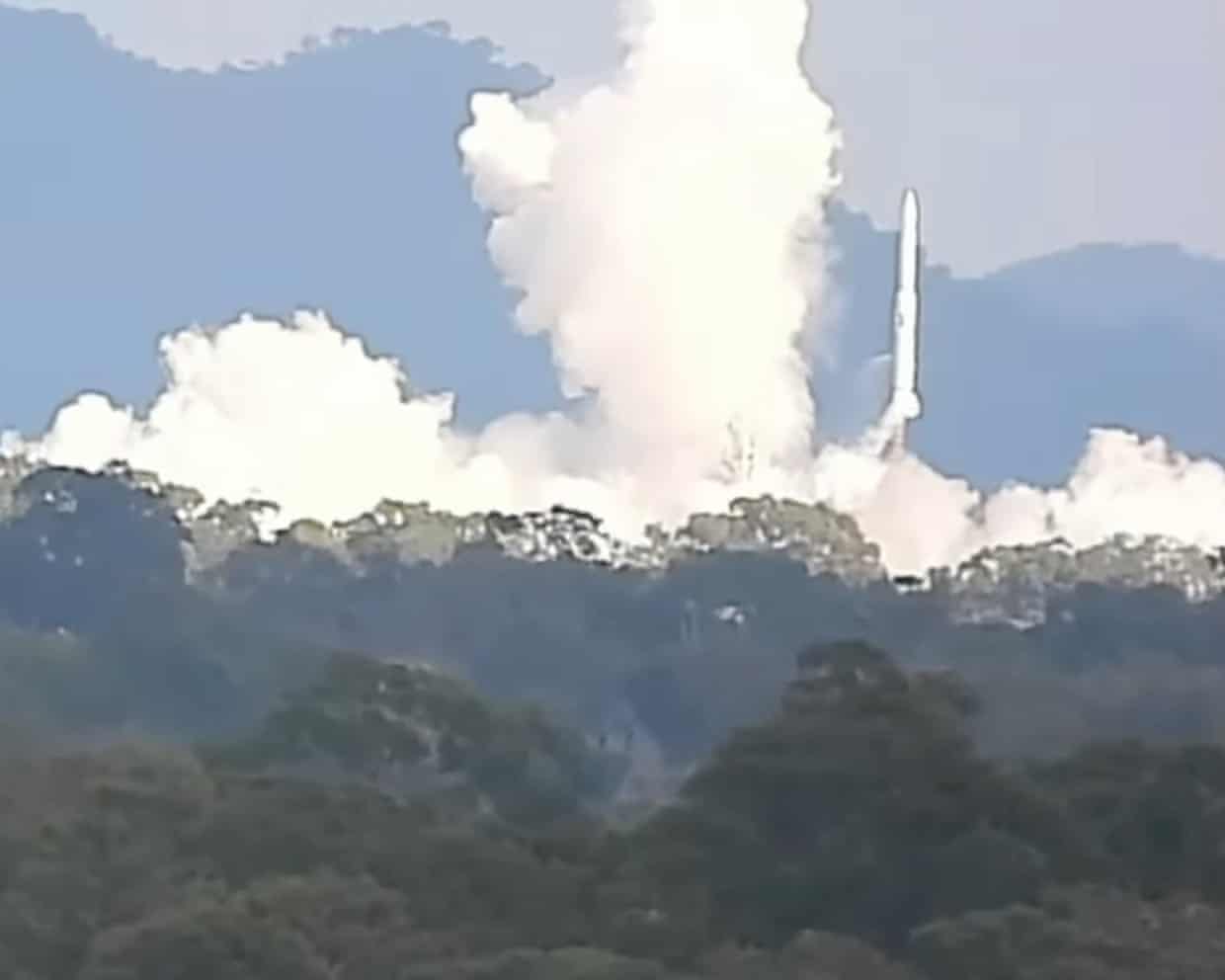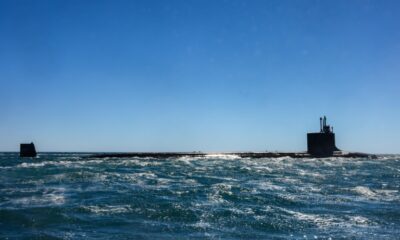Science
Australian-Made Eris Rocket Launch Ends in Early Crash

The launch of Australia’s first orbital rocket, the Eris, ended abruptly shortly after takeoff on March 6, 2024. The rocket, developed by Gold Coast-based Gilmour Space, ascended briefly from the Bowen orbital spaceport in north Queensland before crashing back to earth in a cloud of smoke. Despite the premature conclusion, the event marks a significant milestone for Australia’s burgeoning space industry.
The launch was highly anticipated, drawing attention from space enthusiasts who gathered on nearby hills. Among them was popular YouTuber Josh Keegan, known as Aussienaut, who streamed the event live. “OK we’re going, we’re going, it’s going!” Keegan exclaimed with excitement during the countdown. However, his enthusiasm quickly turned to disappointment as the rocket failed to maintain altitude. “It’s gone, it’s gone,” he said moments later. “There wasn’t sufficient thrust to actually keep it up. I believe that’s the end of the Eris rocket. We have a cloud, and that’s the end.”
Despite the setback, Gilmour Space expressed optimism in a statement released after the launch. The company highlighted that the Eris experienced 14 seconds of flight, bringing Australia closer to joining the elite group of six nations capable of launching spacecraft into orbit. “For a maiden test flight, especially after an extended 18-month wait on the pad for final approvals, this is a strong result and a major step forward for Australia’s sovereign space capability,” the statement read. “Most importantly, the team is safe and energised for Test Flight 2.”
CEO Adam Gilmour, in a social media post, echoed the sentiment, stating, “Got off the Pad, I am happy. Of course, I would have liked more flight time but happy with this.” The 23-meter-long, 30-tonne rocket was equipped with sensors designed to collect data that will inform future launch attempts.
The One Giant Leap Australia Foundation, which focuses on developing educational programs for the space workforce, congratulated Gilmour Space on its efforts. The foundation noted, “The only way to learn is to fail forward. We know more today than we did yesterday.”
Prior to the launch, Gilmour Space faced challenges, including a postponed attempt due to strong winds. The company had initially aimed to launch in May 2023 but did not proceed at that time. Recently, the Australian government provided AUD 5 million to support the development of the Eris launch vehicle and its next-generation liquid rocket engine.
As the Australian space sector continues to evolve, the unsuccessful launch of the Eris rocket serves as both a learning experience and a stepping stone towards future successes. With the commitment of companies like Gilmour Space and support from institutions, Australia is positioning itself to make significant strides in the global space arena.
-

 World3 months ago
World3 months agoScientists Unearth Ancient Antarctic Ice to Unlock Climate Secrets
-

 Entertainment3 months ago
Entertainment3 months agoTrump and McCormick to Announce $70 Billion Energy Investments
-

 Science3 months ago
Science3 months agoFour Astronauts Return to Earth After International Space Station Mission
-

 Lifestyle3 months ago
Lifestyle3 months agoTransLink Launches Food Truck Program to Boost Revenue in Vancouver
-

 Technology2 months ago
Technology2 months agoApple Notes Enhances Functionality with Markdown Support in macOS 26
-

 Top Stories1 week ago
Top Stories1 week agoUrgent Update: Fatal Crash on Highway 99 Claims Life of Pitt Meadows Man
-

 Sports3 months ago
Sports3 months agoSearch Underway for Missing Hunter Amid Hokkaido Bear Emergency
-

 Politics2 months ago
Politics2 months agoUkrainian Tennis Star Elina Svitolina Faces Death Threats Online
-

 Technology3 months ago
Technology3 months agoFrosthaven Launches Early Access on July 31, 2025
-

 Politics3 months ago
Politics3 months agoCarney Engages First Nations Leaders at Development Law Summit
-

 Entertainment3 months ago
Entertainment3 months agoCalgary Theatre Troupe Revives Magic at Winnipeg Fringe Festival
-

 Politics1 week ago
Politics1 week agoShutdown Reflects Democratic Struggles Amid Economic Concerns



















